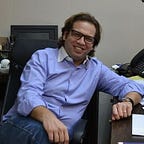Treat ADHD With The Respect It Deserves
ADHD is on the rise around the globe. Recent studies confirm this. I’m talking about the disorder, which some people have called fake, others neurodivergent, and others still a disease. I call it an advantage, though my mother thought otherwise (which is why she never shared my teenage diagnosis with me).
Whichever the term used, I mean the debilitating set of behaviors that fills ordinary life with obstacles; the battle of simple tasks, processing emotions, or navigating a career and family without the crutch of medication (a crutch I’m now truly grateful for).
It’s currently estimated ADHD affects more than 350 million adults worldwide; 8 million adults in the US, and 2.5 million in the UK. About 80% of those are reportedly undiagnosed. This means hundreds of millions of adults continue to exist or function or even excel in society, yet have no idea there’s a specific scientific reason for their ‘trailblazing’ behavior.
Recognize the condition
We need to take the ADHD surge seriously, before it spirals out of hand. I’m not sounding an alarm, but rather, asking for a moment to listen, and pay attention, instead of watering down the condition’s severity. All too often, ADHD-like behaviours are turned into cheap excuses, lumped together with lack of discipline and plain rudeness.
Just because you have a mobile phone doesn’t mean you have ADHD. It just means you’re impolite, and not concentrating. It means you should put your phone away, and be fully present during your meetings. It means you can do so, by yourself, with the right amount of effort.
Someone with ADHD cannot do this easily. If they do put down their phone, their mind might wander, quickly latching onto fleeting ideas, whirring computers, tapping ballpoint pens, water cooler banter, or how equipping everyone in your meeting with Google Pixel Buds could smooth negotiations with your Japanese business counterparts. (Only a small percent of these thoughts may be relevant, but those that are, are often breakthroughs.)
Let’s be real
I’m not saying ADHD isn’t increasingly caused by our modern ways of living. Research is still ongoing. But ADHD, as we know by now, is observable through altered brain patterns. It can arrive later in life, through brain injuries. And it’s hereditary, too (something I’ve witnessed first hand through my daughter).
Yes, life is faster, there is more pressure, and we have notifications non-stop. All of this may contribute. But let’s be aware of the individuals with the real condition that may never be diagnosed.
Let’s not label forgetting your card at home or struggling to hold a conversation as having an “ADHD day today” (even if these are ADHD-typical symptoms). Instead, afford those seriously struggling the benefit of tolerance, openness, and willingness to understand.
Encourage exploration
ADHD symptoms don’t equate to the actual condition. But if you are starting to see the signs, give yourself a fair assessment. Someone with ADHD might exhibit stereotypical behaviors, such as hyperactivity and inattentiveness, but also many other signs contrasting the diagnosis, such as hyperfocus (which is a nightmare to be broken out of), or struggling to sleep well (due to restlessness and entering deep sleep much later).
It’s important to take the time to figure out your ADHD-patterns and how they manifest to you. That’s exactly what I did after my adult ADHD-diagnosis. The journey gave me profound insight into my behavior, my strengths, and my weaknesses, and I’m thankful for the therapist that guided me through it.
If I hadn’t taken the step — if I hadn’t considered it important enough to find out — I would’ve never gotten onto the medication I needed. And yes, I’m not a doctor, but I’m now more productive than ever.
Only by dealing with the revelation earnestly, with a view to improving myself, my relationships, and my business, could I discover how to deal with my ADHD, and even, how the ‘symptoms’ serve me.
If we help others do the same, whether through medication or not, we’ll nurture more Bransons and Phelpses, and make sense of a turning point in our evolution.
Hadar Swersky is an award-winning entrepreneur and author of Winning in Business with ADHD: 13 rules to make ADHD work for you. Sign up to his mailing list to learn about ADHD in business.
